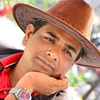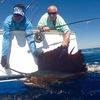How important is it to get the "correct exposure"?
Mar 31, 2019 23:36:13 #
rmalarz wrote:
I would postulate that shooting in manual is the only way to have complete control over the initial exposure and end result That is if using RAW format for the capture.
--Bob
--Bob
I shoot mostly aperture priority, some manual with auto ISO and I have just as much control as if I was shooting full manual.
Mar 31, 2019 23:39:45 #
I'd argue that you don't. You've turned control of shutter speed and ISO over to the camera and whoever programmed it.
--Bob
--Bob
SuperflyTNT wrote:
I shoot mostly aperture priority, some manual with auto ISO and I have just as much control as if I was shooting full manual.
Mar 31, 2019 23:42:24 #
SuperflyTNT wrote:
I shoot mostly aperture priority, some manual with auto ISO and I have just as much control as if I was shooting full manual.
I too shoot mostly aperture priority but always manual ISO. I feel I totally control my aperture and shutter speed by balancing the two. If I can't quite get there I use exposure compensation. I want total control but it doesn't take manual to get it.
...Cam
Mar 31, 2019 23:54:45 #
rmalarz wrote:
I'd argue that you don't. You've turned control of shutter speed and ISO over to the camera and whoever programmed it.
--Bob
--Bob
Not true at all. As long as I know what they are being set to I can control them just as well as if it was full manual by adjusting the aperture and using EC.
Mar 31, 2019 23:57:19 #
rmalarz wrote:
I'd argue that you don't. You've turned control of shutter speed and ISO over to the camera and whoever programmed it.
--Bob
--Bob
Shooting Manual has become the mantra of the elite. Anyone who would spend $3000 to $7000 for a camera body and not use every feature offered is wasting their money. Back in the day, when I was a lot younger and quicker, shooting Kodachrome 25 in a Nikon F on birds I was happy with a success ratio of 1 in 100. There are just too many things that can, and do, go wrong shooting moving targets. I would have been happy to give up focus and shutter control to some anonymous programmer somewhere to get the 1 in 50 successes I get now and bad shots don't cost me money any more.
Apr 1, 2019 01:49:08 #
Apr 1, 2019 06:22:25 #
A common theory about the exposure that I believe so much.
If the image is too bright, it is overexposed.
If it is too dark, it is underexposed.
If it is in-between, it is properly exposed.
If the image is too bright, it is overexposed.
If it is too dark, it is underexposed.
If it is in-between, it is properly exposed.
Apr 1, 2019 07:20:47 #
SuperflyTNT wrote:
Not really, it’s just three unrelated points to creating a good photo. Really not a triangle at all. I guess maybe the exposure triangle is stupid if you don’t understand it.
Actually the guy who wrote the book about it was very smart. He managed to sell a lot of books teaching NOTHING.
Apr 1, 2019 08:32:18 #
AndyH wrote:
What does "correct" exposure mean? br b... (show quote)
My thoughts run along the same lines. It is the final result that determines what is "perfect". And it is in the mind of the photographer. Each and every method has certain starting criteria that is required for the final result. And this is true for any creative representation. A broad point vs a sharp point chisel in working sculptures, for example. In digital photography, we have the benefit of scrapping our scratch tests without incurring large costs. In wet labs, often film and paper were/are at premium.
It is, though, a good rule of thumb to start with a good basis for anything. The same holds for any kind of photography. Hence the need for a good "start" shot.
Apr 1, 2019 09:02:13 #
Exposure is a function of aperture, shutter speed and ISO just for clarity. Manual control is needed in extreme situations such as shooting a solar eclipse, a blood moon or a subject with back lighting. So learning manual control is very helpful if you do not wish a white hot blob of a moon when you want to capture it's unique color. Yes one can change the focal/exposure point but it's likely to fail as the camera's auto exposure system is likely to average the dark night sky or the bright back lighting over exposing the moon or under exposing your subject. Neither situation is recoverable in post process.
Apr 1, 2019 10:23:35 #
Tomcat5133
Loc: Gladwyne PA
I might have replied to a post a while back about "correct exposure." Might thought is
we now have camera's that show the image as it will be recorded by the sensor. What I see
on the LED or EVF is how I evaluate the photo. If I need to adjust so more of the sky is not washed
out I have that choice. If I want to adjust so the dynamic range has a certain amount of detail I can
change that. The exposure is what I want the look of the photo or video to be. I posted a photo at
a lake in the Pocono's last summer that looked like an editorial or Robert Frank "Americans" type photo.
A gentlemen commented he likely photo very much but took the photo and adjusted it lighter and said
your exposure was to dark. That slighter darker was part of my idea of the story of people in a
gigantic pool next to a gorgeous lake "Naomi." It looked more dramatic that way and the people
around and in the pool were a statement of today's world.
we now have camera's that show the image as it will be recorded by the sensor. What I see
on the LED or EVF is how I evaluate the photo. If I need to adjust so more of the sky is not washed
out I have that choice. If I want to adjust so the dynamic range has a certain amount of detail I can
change that. The exposure is what I want the look of the photo or video to be. I posted a photo at
a lake in the Pocono's last summer that looked like an editorial or Robert Frank "Americans" type photo.
A gentlemen commented he likely photo very much but took the photo and adjusted it lighter and said
your exposure was to dark. That slighter darker was part of my idea of the story of people in a
gigantic pool next to a gorgeous lake "Naomi." It looked more dramatic that way and the people
around and in the pool were a statement of today's world.
Apr 1, 2019 17:29:40 #
rmalarz wrote:
I would postulate that shooting in manual is the only way to have complete control over the initial exposure and end result That is if using RAW format for the capture.
--Bob
--Bob
Not for the person who is not yet capable of using manual. And some do not necessarily want complete control. Using some automation gives the newbee a chance of getting a decent shot in a non-reproduceable situation. A person has to grow into their craft. Starting the hard way can be disheartening.
Apr 1, 2019 17:31:43 #
BebuLamar wrote:
Actually the guy who wrote the book about it was very smart. He managed to sell a lot of books teaching NOTHING.
And what book would that be?
Apr 1, 2019 18:10:03 #
hassighedgehog wrote:
Not for the person who is not yet capable of using manual. And some do not necessarily want complete control. Using some automation gives the newbee a chance of getting a decent shot in a non-reproduceable situation. A person has to grow into their craft. Starting the hard way can be disheartening.
Not trying to be argumentative, however if this was the case, how would those of enough age ever have got started without various auto settings and the need to use a hand held meter rather than just relying on the sunny f16 rule, etc? You make a fair point but it caused me to think back on my own experience. In my case I got good coaching from a camera store owner and then took photography in college which helped immensely.
Apr 2, 2019 13:02:48 #
PixelStan77 wrote:
IMHO Light is our Language. With that said proper exposure along with Composition are critical for a fine image. With digital cameras looking at the histogram and image and making a + or - adjustment is a no brainer.



If you want to reply, then register here. Registration is free and your account is created instantly, so you can post right away.








